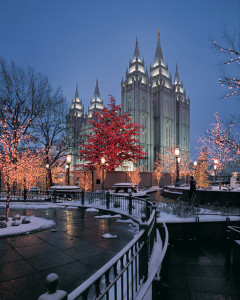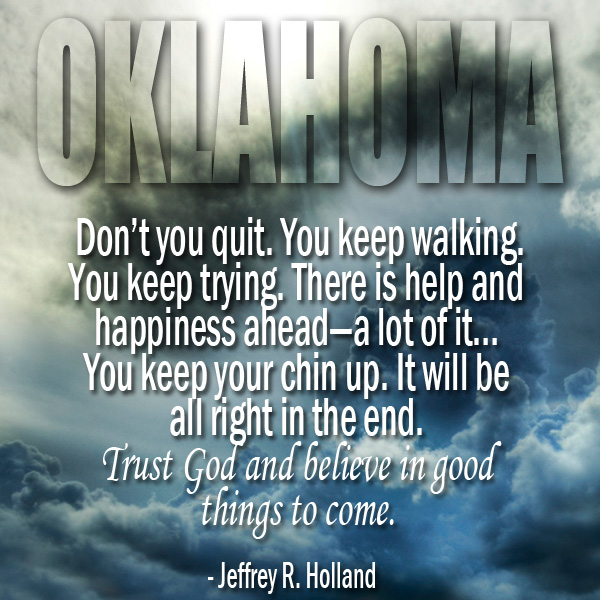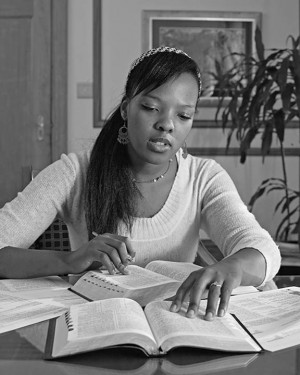Rev Wesley H. Hartley of Perth, Australia is both the mayor of Busselton, Australia and a Reverend in a Christian church. Church leaders in Australia contacted him to ask for assistance in figuring out how Mormons (a nickname for members of The Church of Jesus Christ of Latter-day Saints) could become a more accepted part of the Christian community in the area. They focused particularly on humanitarian and service needs common to most Christian faiths.
He admitted that it was unlikely the local churches would shed their prejudices and misinformation, but he did feel they could become a greater part of the local community, given their history of community service. The Mormons invited him to visit Salt Lake City, Utah, the international headquarters of the Mormons, to see first-hand how the church worked, particularly in the areas of humanitarian relief. Meridian Magazine has an article by this Reverend detailing his visit and his impressions.
Read: Missionary Moment: Australian Reverend Visits LDS Church, by Mark Albright
 He said of this visit, “What took place in the following five days can be described as nothing short of remarkable, in terms of the experiences encountered, love shared, and people of deep commitment and faith opened their hearts, their homes and their lifestyle.”
He said of this visit, “What took place in the following five days can be described as nothing short of remarkable, in terms of the experiences encountered, love shared, and people of deep commitment and faith opened their hearts, their homes and their lifestyle.”
Rev. Hartley was particularly impressed by his visit to Welfare Square. Welfare Square is the hub of the humanitarian work done by the church. Foods and commodities needed to care for those who are suffering are produced and packaged there. Kits and supplies made by Mormon volunteers are also collected there. These kits include hygiene kits for people facing natural disasters or living in refugee or war situations.
(See Mariama Kallon’s story of receiving a hygiene kit in the midst of war.)
He learned that some supplies go out to the non-Mormon world during natural disasters, when a location has a special need, or when a local food bank is facing shortages, for instance. Others go to Mormons themselves, following the mandate to care for our own families. Mormons refer to those in their congregations as their “ward family.” Ward is the Mormon term for congregation. It ensures a family no matter where you live or how far away from your real family you might be.
When a Mormon has a temporary financial situation, such as unemployment, he approaches his bishop, a lay pastor. The bishop discusses his needs and makes certain it is real. He helps the member evaluate his financial situation and assists him in finding ways to cut his budget. Then he invites the member to fill out a form that lists the food and commodity items available to the family. This is often done by the wife and the president of the women’s Relief Society. Unlike most food banks, where visitors must accept a random assortment of donated items in a smaller quantity because there is so much need, the Mormons are able to provide nearly all necessities and even some luxuries. They are given enough to cover all their needs for two weeks, including food, toiletries, and cleaning supplies. This is possible because they know who is coming in and because visits are largely limited to church members. However, this means Mormons do not need to deplete the resources of community food banks or use food stamps, leaving those resources for those without a safety net.
The supplies are paid for through a unique program called Fast offerings. Once a month, Mormons fast—go without food or drink—for twenty-four hours. The money they save by not eating or drinking is donated to the poor in their congregation. If the congregation has few needs the additional funds are sent to congregations where the need is greater.
The Reverend came away with great respect for Mormons. He quoted Rodney Stark of the University of Washington, who said in “The Rise of New World Faith” in the Review of Religious Research, “I am quite aware of how easy it is for one person’s faith to be another’s heresy. Indeed, that was the basis of my work on religion and Anti-Semitism. Nevertheless, one does not really expect to find hard line particularism among scholars of religion. Thus I continue to be astonished at the extent which colleagues who would never utter anti-Semitic, anti-Catholic, or even anti-Muslim remarks, unselfconsciously and self-righteously condemn Mormons. It’s time we did better.”
The late Terrie Lynn Bittner—beloved wife, mother, grandmother, and friend—was the author of two homeschooling books and numerous articles, including several that appeared in Latter-day Saint magazines. She became a member of the Church at the age of 17 and began sharing her faith online in 1992.




What a good example of “By their works ye shall know them.”
We loved this article and posted it up on our FB page LDStrong.